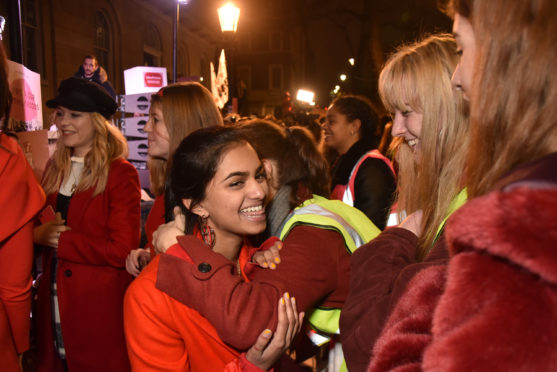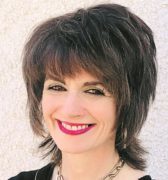What were you doing at 16, the age of Sweden’s teenage climate change activist, Greta Thurberg?
I was hobbling painfully up University Avenue in Glasgow in four-inch heels, en route to my 11am lecture on Keats’ poetry or Shakespeare’s sonnets. I always ensured just enough time to stop at the loos and apply a fresh slick of lippy–Pouting Pink as I recall–which was lecture preparation of at least equal value to pre-reading Ode to a Nightingale or all 154 sonnets.
Certainly, I bought an occasional copy of Socialist Worker, being careful to carry it with the title page outward so that its credentials as a right-on rebel paper rather than a right-wing rag were evident to all. I did, to be fair, always believe in left-of-centre politics and wasn’t shy of saying so, but as for actually reading it, my attempts ranged on a sliding scale from bafflement to boredom. Carrying it sufficed as my contribution to the revolution, comrade.
University felt like adulthood but few of us really believe 16 is the end of childhood and vulnerability. It was with sadness that I read about a new report from Action For Children. The charity’s chief executive, Julie Bentley, maintains that Britain is, “sleepwalking into a crisis in childhood and far from being carefree, our children are buckling under the weight of unprecedented social pressures”.
What are children worrying about? Bullying, mainly, particularly on-line. But also homelessness, terrorism, domestic abuse, mental health issues, racism, sexism, hunger, child abuse, neglect – oh, and Brexit. Seen through the eyes of the nation’s children, our world is ugly indeed. Violent, unjust, uncaring and frightening.
After 11am Keats, it was 2pm philosophy where I learned about the 17th century philosopher, Thomas Hobbes, and his description of life outside the constraints of society as “solitary, poor, nasty, brutish and short”. In our children’s eyes, we seem to have, at least partially, lost that sense of community that restrains the nastier side of human nature.
It is unsurprising that children are weighed down by social media bullying with its banal, intrusive, undiluted flow of on-line verbal garbage, its show-offy mentality and the vile hatred of its discourse. It amazes me that people I know have lied on social media about the schools they went to, the jobs they have done, the place they grew up….what’s the point? It’s like some nutty, world series of TOWIE where fact and fiction become blurred. But even I can see the amazing potential for global activism that social media offers, the potential to stir social conscience. Young people have not only embraced, but mastered, that.
So while I worry about the Action for Children report, and the plight of the nation’s poorest children, there is something quite inspiring about this generation of young people. It’s not just Thurberg. There’s 16-year-old Bella Lack, who at just 15 told a rally of climate change activists: “If in 30 years’ time we haven’t acted on this issue, we will look back to today and – as we stand on a ruined and uninhabitable planet – we will wish that we took action before it was too late.”
Then there’s 19-year-old Amika George who successfully campaigned for free sanitary products to save the embarrassment of young women who couldn’t afford them; Amy and Ella Meek who, at just 15 and 13, founded an award-winning charity, Kids Against Plastic; not to mention the group of teenagers from Maryport, aged 14-18, who met with government ministers to lobby for better mental health services for young people. With good reason. Almost 17% of 17-19-year-olds are emerging from childhood with a mental health issue, while almost a third of young people are, according to a YouGov poll, “ashamed of their bodies.”
Teenage angst is not new. At school, I recall trembling during animated discussions on whether a nuclear war would see us all off in the most terrifying way. Then we all went and bought another packet of salt and vinegar crisps and applied some more lippy because it was someone else’s problem. With Trump, Putin and Kim Jong-un in charge, and Boris Johnson supposedly the favourite in Old Blighty, teenagers must wonder where the adults have gone. Lights on, nobody home.
There’s an apocryphal tale about the wording on an ancient Egyptian tomb that apparently reads, “We live in a decaying age. Young people no longer respect their parents. They are rude and impatient. They frequently inhabit taverns and have no self-control.” There is dispute about the date, but what is indisputable is that every generation decries its young for being ‘less’ than they were. Hard to argue that right now.
Action for Children say that for the past decade, “the government has been asleep on the job when it comes to investing in our children.” Clearly, something has gone wrong. But no thanks to the politicians, something has also gone right. Credit must go to this generation of young people who display a level of social conscience and commitment that put my Pouting Pink generation to shame.
Catherine Deveney is an award-winning investigative journalist, novelist and television presenter











